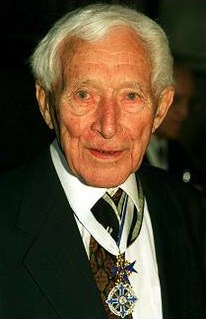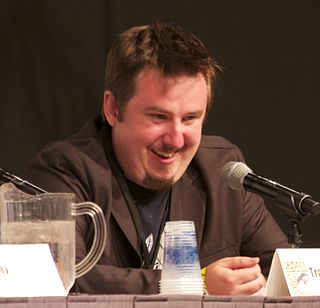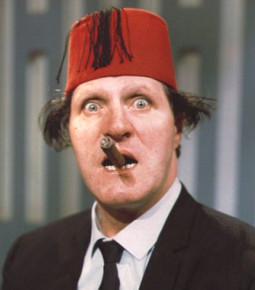A Quote by Carroll Quigley
I am now quite sure that Tragedy and Hope was suppressed although I do not know why or by whom
Related Quotes
In formulating any philosophy the first consideration must always be: What can we know? That is, what can we be sure we know, or sure that we know we knew it, if indeed it is at all knowable. Or have we simply forgotten it and are too embarrassed to say anything? Descartes hinted at the problem when he wrote, 'My mind can never know my body, although it has become quite friendly with my legs.
Hope? Hope is not the absence of tragedy, my friend. It is the conviction that tragedy can be endured. Hope is the spark in you that is not subdued in the face of the vast and callous indifference of the universe. Hope is that which is not shattered by hardship. Hope is the urge to fight what is wrong even when you know it will destroy you. Hope is the decision to love and need someone knowing that they will one day die. For me to promise that there are no obstacles would be the cruelest lie I could possibly tell. That lie is not hope. Hope is the will which needs no lies.
My hope lives not because I am not a sinner, but because I am a sinner for whom Christ died; my trust is not that I am holy, but that being unholy, HE is my righteousness. My faith rests not upon what I am or shall be or feel or know, but in what Christ is, in what He has done, and in what He is now doing for me. Hallelujah!
When you face adversity . . . don't' ask: Why does this have to happen to me? Why do I have to suffer this, now? What have I done to cause this? Rather ask: What am I to do? What am I to learn from this experience? What am I to change? Whom am I to help? How can I remember my many blessings in times of trial?
Crime, violence, infamy are not tragedy. Tragedy occurs when a human soul awakes and seeks, in suffering and pain, to free itself from crime, violence, infamy, even at the cost of life. The struggle is the tragedy - not defeat or death. That is why the spectacle of tragedy has always filled men, not with despair, but with a sense of hope and exaltation.
I am not an optimist, because I am not sure that everything ends well. Nor am I a pessimist, because I am not sure that everything ends badly. I just carry hope in my heart. Hope is the feeling that life and work have a meaning. You either have it or you don't, regardless of the state of the world that surrounds you. Life without hope is an empty, boring, and useless life. I cannot imagine that I could strive for something if I did not carry hope in me. I am thankful to God for this gift. It is as big as life itself.
I am quite ready to acknowledge . . . that I ought to be grieved at death, if I were not persuaded that I am going to other gods who are wise and good (of this I am as certain as I can be of any such matters), and to men departed who are better than those whom I leave behind. And therefore I do not grieve as I might have done, for I have good hope that there is yet something remaining for the dead.




































